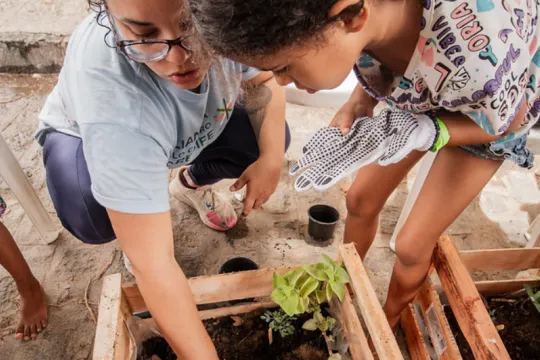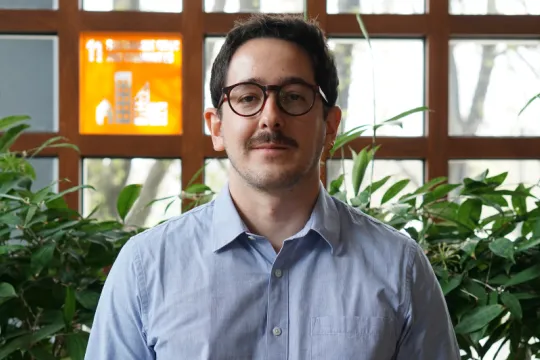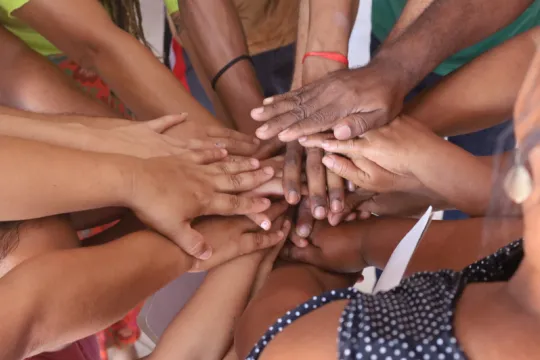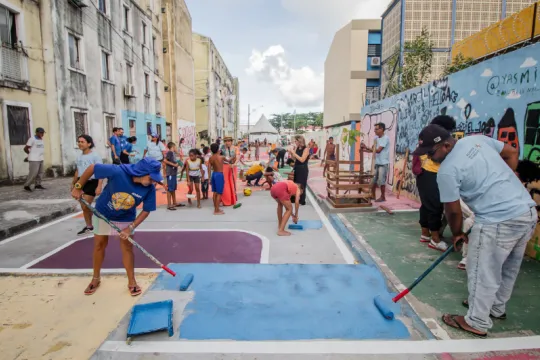In Recife, work is focused around the city's historic core, an island called Bairro do Recife. The Urban Lab brings together multiple stakeholders to work on integrated solutions, projects and transformations to address challenges of the Pilar Community, an area where 350 families face spatial, territorial and socioeconomic challenges.
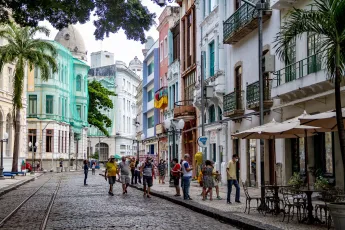
A colourful street in Recife, Brazil. April 2022 © Adriana Preta / WRI Brasil
Recife, Brazil
Recife is the largest metropolitan area in the north-east of Brazil, with almost 4 million inhabitants. Located on the north-east coast of the country, the city has an average altitude of 4 m above sea level and is divided by four rivers and numerous channels.
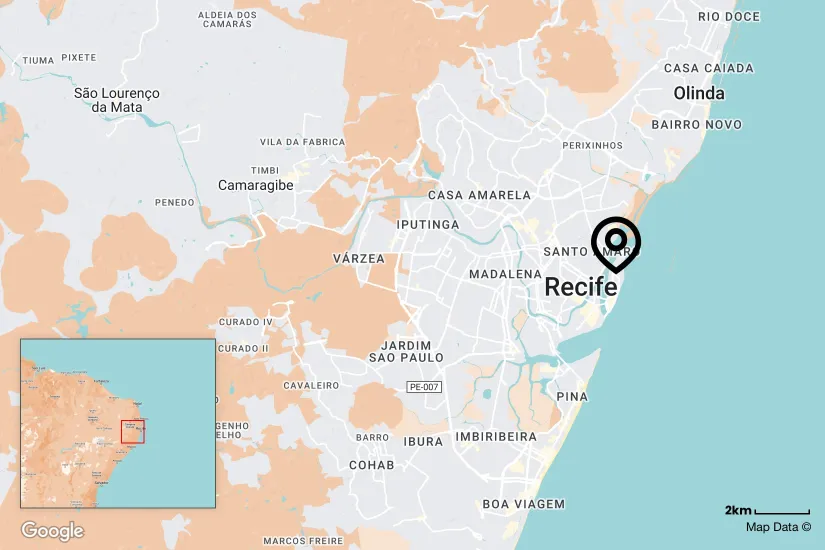
This makes Recife the most vulnerable city to sea level rise in Brazil according to the UN Intergovernmental Panel on Climate Change (IPCC).
Recife is a prominent front-runner for climate policymaking in Brazil, having formulated robust plans and strategies. The city approved an important Climate Action Plan that brings goals for four axes: energy, sanitation, mobility and resilience. Among the targets is to reduce energy consumption in all economic sectors by 20 per cent and landfill waste by up to 50 per cent by 2050, as well as defining strategies to adapt to rising sea levels by 2024.
The next step is to bridge the gap between strategic planning and taking real climate action. In doing so, prioritizing the most vulnerable communities and transforming informal and low-income settlements provide an opportunity to tackle social and economic inequalities and adapt to climate change at the same time.
Context & Background
The historic core of Recife, located on an island called Bairro do Recife, was revitalized in 2000 through an innovative public-private partnership that created an information technology hub called Porto Digital, which generated 9,000 jobs and 300 new companies. However, investments in innovation and rehabilitation of historical heritage and public spaces concentrate on only one part of the island.
Pilar Community is on the other part of the island, where approximately 350 families face spatial, territorial and socioeconomic challenges. The social housing that provides accommodation was built in 2016 and is located between old factories and abandoned warehouses. There is a need to fill the gap between strategic planning and climate action to deal with issues like solid waste disposal, the energy efficiency of buildings, the urban precariousness of the territory and the economic and social vulnerability of the population.

Urban Lab participants talk to neighbourhood residents in Recife's Pilar community, 22 April 2022. © Adriana Preta / WRI Brasil

An old portal gives an insight in an unpaved street in Recife. © Adriana Preta / WRI Brasil
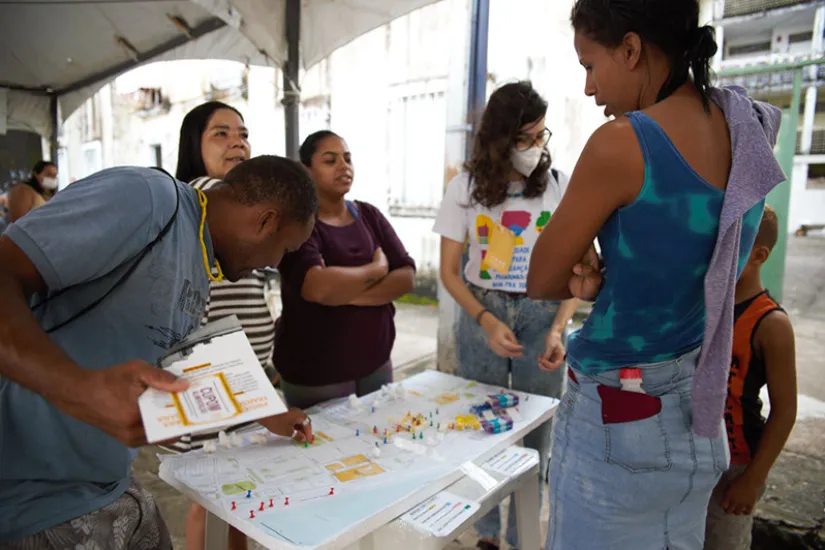
Participants of the coalition of local actors, as part of the Alliances for Urban Transformation project, talk to residents of the Pilar community in the downtown, 22 April 2022. © Adriana Preta / WRI Brasil
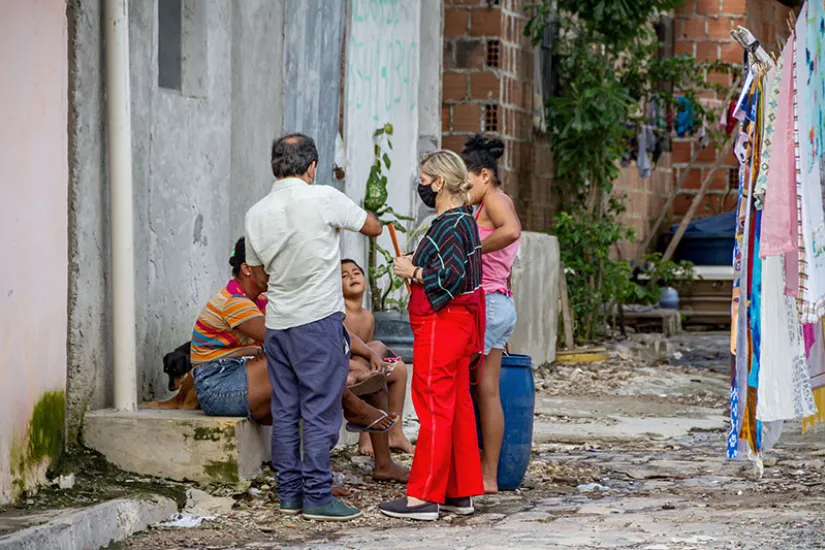
Participants of the coalition of local actors, as part of the Alliances for Urban Transformation project, talk to residents of the Pilar community in the downtown, 22 April 2022. © Adriana Preta / WRI Brasil
The Urban Lab
The Urban Lab includes participants from both parts of Bairro do Recife as well as stakeholders from public and private institutions with the objective of working on solutions addressing climate change and social inclusion. Moreover, these should respond to the urgent needs of a vulnerable population. The coalition is called Aliança pelo Centro do Recife.
The group works on integrated solutions, projects and transformations to address challenges like waste management, revitalization of public spaces and improvement of poor housing conditions (through the renovation of units, the implementation of condominium management and the inclusion of sustainability technologies in future homes). Including leaders from the Pilar Community in the process is essential to develop catalytic interventions that will tackle the community’s most urgent needs.
Who takes part in the Coalition
- Institute of Architects of Brazil - PE
- Community of Pilar (residents)
- Parliamentary Front of the Center
- Pelópidas Silveira City Institute (urban planning)
- Recife Agency for Innovation and Strategy
- Downtown Recife Office - Recentro
- Metropolitan Cyclists Association of Recife
- Homeless Workers Movement
- Center for Advanced Studies and Systems of Recife
- Architecture Does Good
- Casa Zero
Contact: alianca.centrodorecife@gmail.com
Instagram: @alianca.centrodorecife
